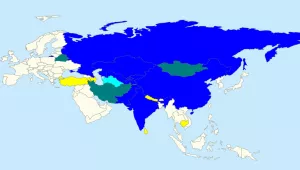
‘Third countries’ are frequently exploited by those involved in networks to transfer proliferation-sensitive technologies, allowing procurement agents to obscure the end user or vendor located in the proliferating state, and to deceive industry, export licensing officials, and intelligence services. While ‘third countries’ frequently feature in illicit transactions, the academic literature exploring the roles played by entities in these jurisdictions is limited. Building on the sanctions busting literature, this article proposes a loose typology considering the ways in which third countries can be exploited by proliferation networks. The typology is illustrated using three cases involving entities based in Malaysia – A. Q. Khan’s nuclear black market network, and Iran and North Korea’s efforts to procure and market WMD-related and military goods. These cases are used to generate insights into proliferators’ selection of ‘third country’ hubs. The article argues that while exploitation of third countries by proliferation networks is a similar, but distinct phenomenon to trade-based sanctions busting, hubs of both activities share characteristics. Furthermore, the article argues that other factors beyond the lax regulatory environment, such as level of development, and personal connections, are often as important in driving the decisions of proliferation networks. The article concludes with implications for nonproliferation policy.
Salisbury, Daniel, “Exploring the Use of 'Third Countries' in Proliferation Networks: The Case of Malaysia,” European Journal of International Security, August 10, 2018.
The full text of this publication is available via European Journal of International Security.




